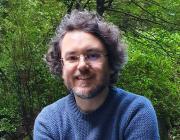Research
Perceptual Knowledge
Ecological Disjunctivism: from perception to social cognition (2022-2026)
The main goal of this project is to articulate and develop theecological disjunctivism. Disjunctivism regarding perceptual experience is the thesis that there is no fundamentally common factor between perceptual episodes and the corresponding hallucinatory episodes. Ecological disjunctivism is a version of disjunctivism that relies on ecological psychology. According to ecological psychology, perceptual abilities result from a tuning process of the organism in relation to its environment. Perception is active, and it pursues to pick up environmental information that specifies affordances. Thus, perceptual episodes are distinct from the ‘corresponding’ hallucinatory episodes: the former but not the latter involves the pick-up of environmental information. There is a series of problems within the philosophy of perception that need to be addressed by the ecological disjunctivism. In this project, three problems will be addressed: (1) the causal argument against disjunctivist views of perception; (2) the problem of perceptual presence and (3) the problem of the perception of social affordances. By facing these three problems, ecological disjunctivism will be articulated as a sound view regarding the nature of perceptual experience that is able to explain how we can have cognitive contact with the world.
This projected has been awarded grants from CNPq Nº 04/2021 Bolsas de Produtividade em Pesquisa - PQ.
Practical Knowledge as an ability (2019-2022)
According to the sensorimotor theory of perception, the act of perceiving depends on the understanding of the effect of movements upon the flow of appearances. This notion of understanding can be explained in terms of a representation of the relation between movements and changes of appearances or in terms of a type of practical ability (know-how) of how to deal with appearances of an object or an event. In this research project, we assume the second approach. Our working hypothesis, leaning on ecological psychology, is that practical abilities, in especial, discriminatory abilities, are embodied, embedded and dependent on the environment. Abilities do not boil down to propositional knowledge. Thus, this project pursues two main aims: (a) to articulate and sustain a non-intellectualist view of abilities (know-how) and (b) to explain, based on the ecological psychology, the nature of abilities, which are dependent on the environment in a constitutive way, and, therefore, embedded.
This projected has been awarded grants from CNPq Nº 09/2018 Bolsas de Produtividade em Pesquisa - PQ.
Disjunctivism and the distinguishability problem (2017-2018)
Abstract: This research project has two main aims: (1) to assess and compare McDowell's and Pritchard's disjunctivist approaches to perception, especially their responses to the distinguishability problem, and (2) to offer a disjunctivist solution to this problem exempt from the difficulties we find in the solutions of those philosophers. Disjunctivism implies that the world or the environment in some way constitutes our perceptual capacity. However, little attention was paid by disjunctivism's defenders as to how this constitution can be explained. I intend to give this sort of explanation based on an enactive account of perception. By considering the sensorimotor skills and the practical interactions we have with the world, it's possible to explain in detail why the perceptual capacity cannot be conceived independently of the world with which we are constantly interacting. I will argue that the perceptual disjunctivism elaborated from the enactivist account of perception doesn't need to allow the possibility that gives rise to the distinguishability problem.
This project has been award grants from Edital 16/2016 do Programa de Estágio Sênior no Exterior.
Conceptualism and sensorimotor skills in Alva Noë's philosophy of perception (2016-2019)
Abstract: The main objective of this project is to assess the conceptualism defended by Alva Noë in Action in Perception (2006) and Varieties of Presence (2012), and to figure out how his position can explain the justificatory role of perceptual experience. Peacocke (1998), Kelly (1998, 2001) and others have presented serious objections against perceptual conceptualism. In this project, we are interested in explaining how Noë responds to these objections and in assessing how much he is well succeeded. His innovative idea was to identify the possession of sensorimotor skills with the possession of concepts. Through this identification, Noë was able to elaborate both the thesis that perception is penetrated by cognition and the thesis that thought relies upon practical skills. By the exercise of coordinated sensorimotor skills, perception places objects and its properties in view. Noë ends up defending a relational conception of perception. Accepting that perceptual consciousness is consciousness of objects-in the same way that sense data were supposed to be directly apprehended by the sense-data theories-Alva Noë needs to explain how this consciousness can be an episode of knowledge without being victim of the Sellars's attack against the given. In this project we will assess his response to this question.
This projected has been awarded grants from CNPq/ MCTI Nº 25/2015 Ciências Humanas, Sociais e Sociais Aplicadas and from CNPq Produtividade em Pesquisa PQ 2015.
Inductive Reasoning
Indução, Teoria da Projetabilidade e Conhecimento de Fundo. (2011-2017)
Resumo: Um das principais dificuldades na formulação de regras para separar boas de más induções é a falta de precisão sobre o modo como o conhecimento de fundo influi sobre a correção das inferências indutivas. A Teoria da Projetabilidade de Nelson Goodman fornece alguns mecanismo para relevar conhecimento de fundo na determinação da validade e invalidade da inferência indutiva. Porém, em virtude de certas críticas e contraexemplos, cabe investigar até que ponto todo conhecimento de fundo que possa vir a ser relevante para a validade ou invalidade de uma inferência indutiva particular é incorporado e relevado pela teoria.
This projected has been awarded grants from CNPq /CAPES N º 07/2011.
